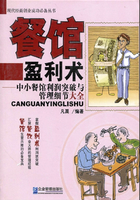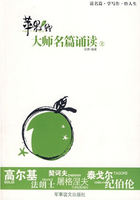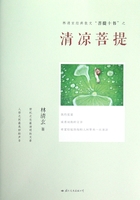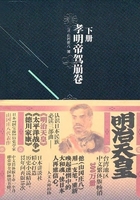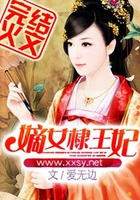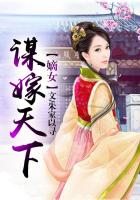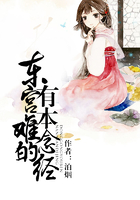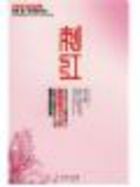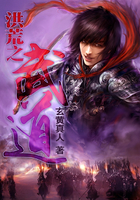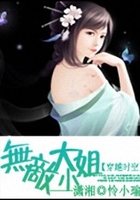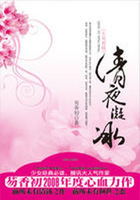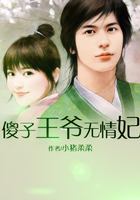The time-honored practice of pasting spring couplets is still being followed to these days. However, the current couplets are quite different from those of the past as far as their meaning is concerned. They now either describe the flourishing national progress or wonderful sights of the land. They also give expression to people’s wishes for a still better future.
Notes:1)peach-wood charms桃符;2)vogue流行;3)decree命令;5)time-honored确立已久的
5.为什么人们常常倒贴“福”字?
Why is a Chinese character “fu” often pasted upside down on a door or a wall?
During the Spring Festival, each household pastes a big or small Chinese character“fu (福)”on its entrance door or on walls inside houses as part of the Spring Festival celebration.
The character means“happiness”or“fortune.”Throu ghout the course of the Chinese history, people have kept the custom of pasting the character during the Spring Festival, yearning for good fortune and a bright future.
How did the custom come into being? Legend has it that when Jiang Ziya (姜子牙) granted titles to deities, his wife came and asked him to offer her a title. Jiang said to her,“You are a spendthrift. All the families suffer from misfortune and become poor after you visit them, so I am going to offer you the title of the Poverty Deity.”On hearing of this, his wife said,“Where am I going to stay as the Poverty Deity?”Jiang answered,“You are welcome to stay anywhere except places where‘fortune’exists.”Jiang’s words passed far and wide among common people, and they quickly pasted the Chinese character“fu (福)”in the hope that the Poverty Deity might not descend to their houses. This practice passed on from generation to generation until it became a custom for the festival celebration.
Sometimes the“fu”character is pasted upside down. Why? The word“reverse”or“upside down”means“dao (倒)”in Chinese. This“dao”and another“dao (到, arrive)”are pronounced exactly the same although the former one has a radical on the left, and the latter has none. People use the same pronunciation simply to demonstrate that“the happiness or good fortune has arrived.”
There is a folktale that explains the origin of why the character is put upside down. Once during the Spring Festival, Zhu Yuanzhang (朱元璋), the first emperor of the Ming Dynasty arrived in a small town. He took off his emperor’s dress, decided to put on common clothes, and then left the guesthouse. As he toured the town, he saw a group of people staring at a drawing of a bare-footed woman who carried a huge watermelon in her arms. The caricature made fun of big-feet women. At that time, many women had bound-feet as the style was considered lovely and alluring. Incidentally the empress happened to have big feet, so this drawing irritated the emperor. He returned to the guesthouse and ordered his palace men to find out who was involved in the mischief. His men then pasted the character“fu”on the doors of houses to indicate these families that were not involved in the mischief. Next morning the palace men would arrest the people whose houses’ doors did not have any character.
Upon hearing of it, the kind-hearted empress immediately ordered all the people in the town to paste the“fu”character on the doors of their houses. She even emphasized that this task had to be done before daybreak. One illiterate local person pasted the character upside down by accident. The next morning the emperor and empress went out into the street and found out that each household had the character on their doors. However, the overturned character caught their eyes. The emperor stopped to view it for a moment. He became angry again and ordered his palace men to arrest the man and his whole family and put them into jail.
The empress immediately interrupted. She said,“This family pasted the character upside down on purpose because they were told that you would pass by their house today. The overturned character actually means‘arrival of fortune.’”The empress’ explanation convinced the emperor to set the man and his family free. From then on people began to follow this custom.
Notes:1)yearn渴望;2)grant授予;3)spendthrift挥霍无度;4)descend下降;5)upside down颠倒;6)radical部首;7)bare-footed赤脚的;9)caricature漫画;10)alluring诱人的;11)irritate刺激;12)mischief恶作剧;13)overturn颠倒
6.元宵节是怎样产生的?
What is the origin of the Lantern Festival?
The Fifteenth day of the first lunar month is an important traditional festival in China. Members of a family get together to mark the occasion. This festival dated back to the Warring States Period, when people observed the custom of watching lanterns under moonlight. At first, they did this on the day for offering sacrifices to the Sun God, who was known as the Lord of the East. It is said that people began to mark the Lantern Festival in the Han Dynasty. According to ancient Chinese history, after the death of Liu Ying (刘盈, Han Emperor Hui), the Queen Lü (吕后) monopolized the power of the state, and placed Lü’s family persons in key governmental positions. However, after her death, Zhou Bo (周勃), Chen Ping (陈平) and others then jointly got rid of Queen Lü’s powers and made Liu Heng (刘恒) the new emperor of the Han Dynasty. Because Zhou Bo and Chen Ping drove the Lü’s relatives and officials out of power on the fifteenth day of the first month, the emperor would leave his palace in civilian dress that night every year to celebrate the festival with the people on the streets. In ancient times, the word ye (夜, night) and xiao (宵, evening) were synonyms, and the first month of a year was called the yuan (元, primary) month. Therefore, Emperor Wen (汉文帝) named the fifteenth day of the first month the Lantern Festival.
Notes:1)the Warring States Periods战国;2)monopolize垄断;3)get rid of摆脱;4)civilian平民;5)synonym同义字
7.什么是清明节?
What is the Pure Brightness Festival?
The Qingming Festival (清明节, Pure and Bright Festival) has been one of the most popular festivals in China for thousands of years. On the day, people go and pay respects to ancestors at their tombs. The festival takes place in early spring, when all life begins to renew. It is also a good time for outings.


